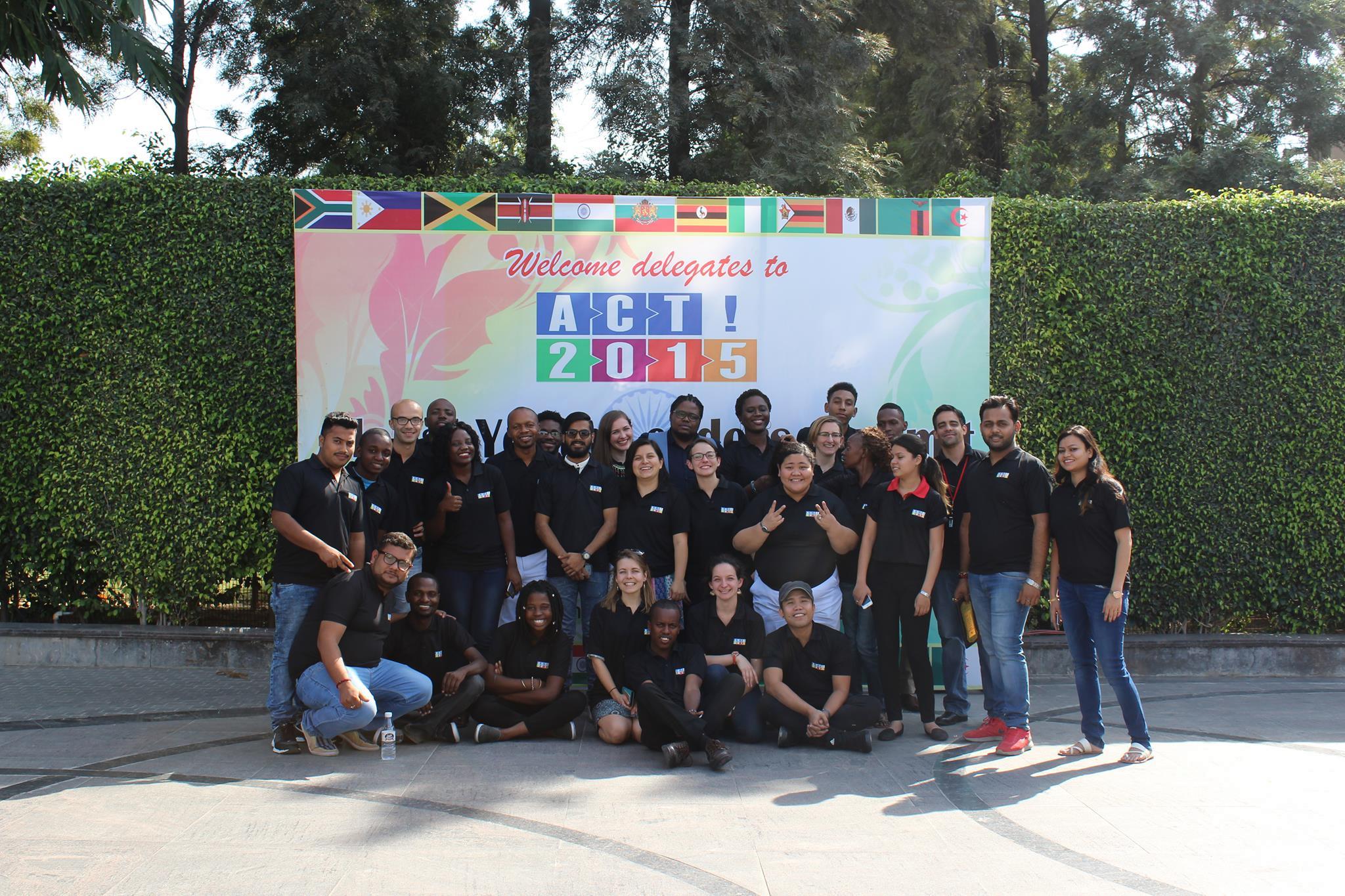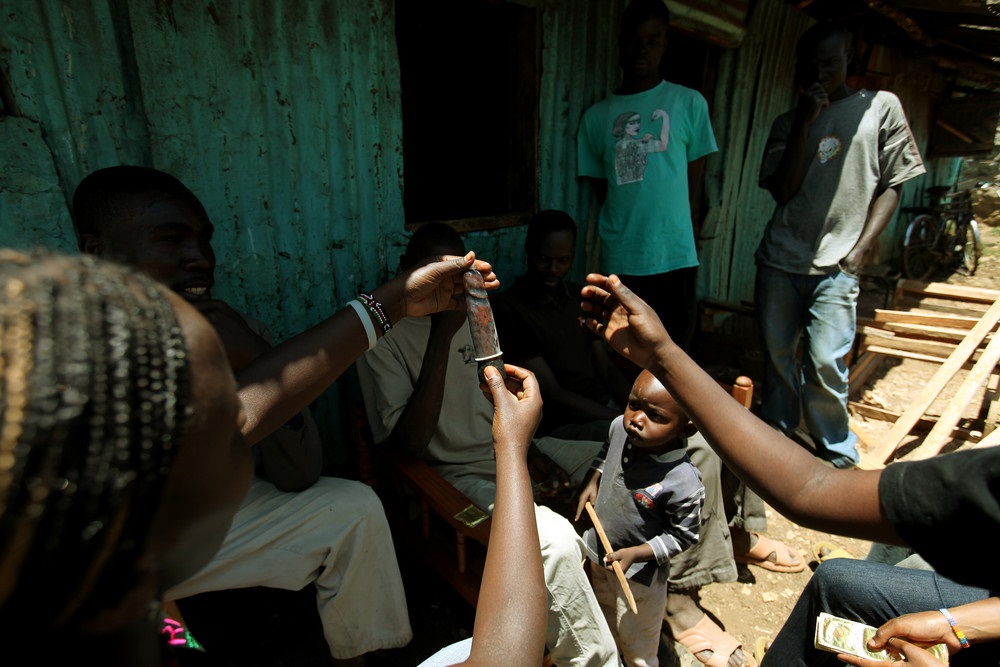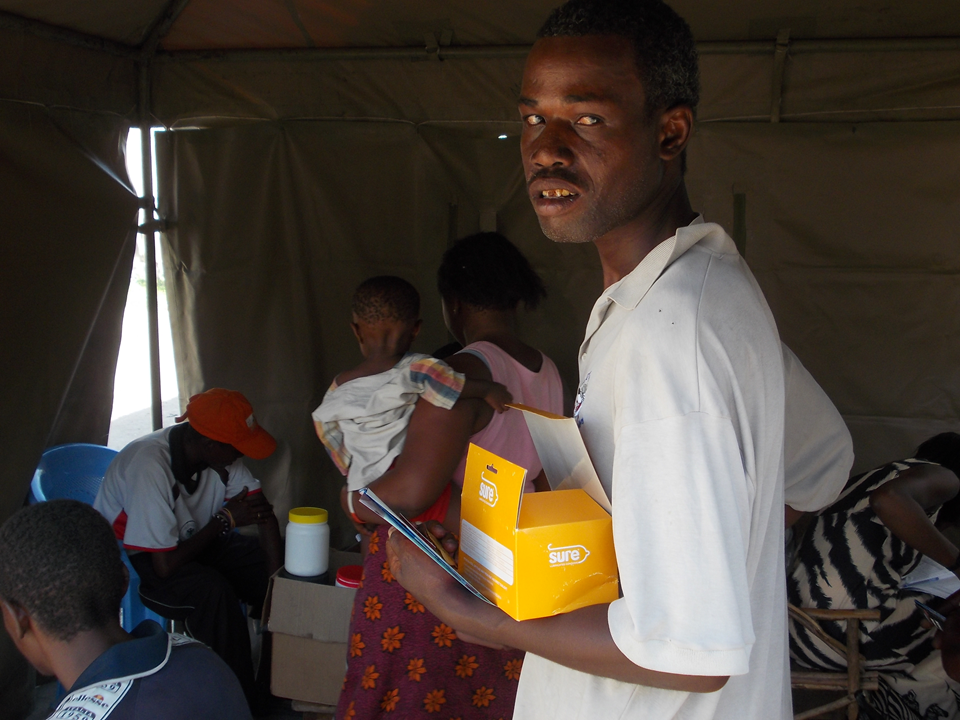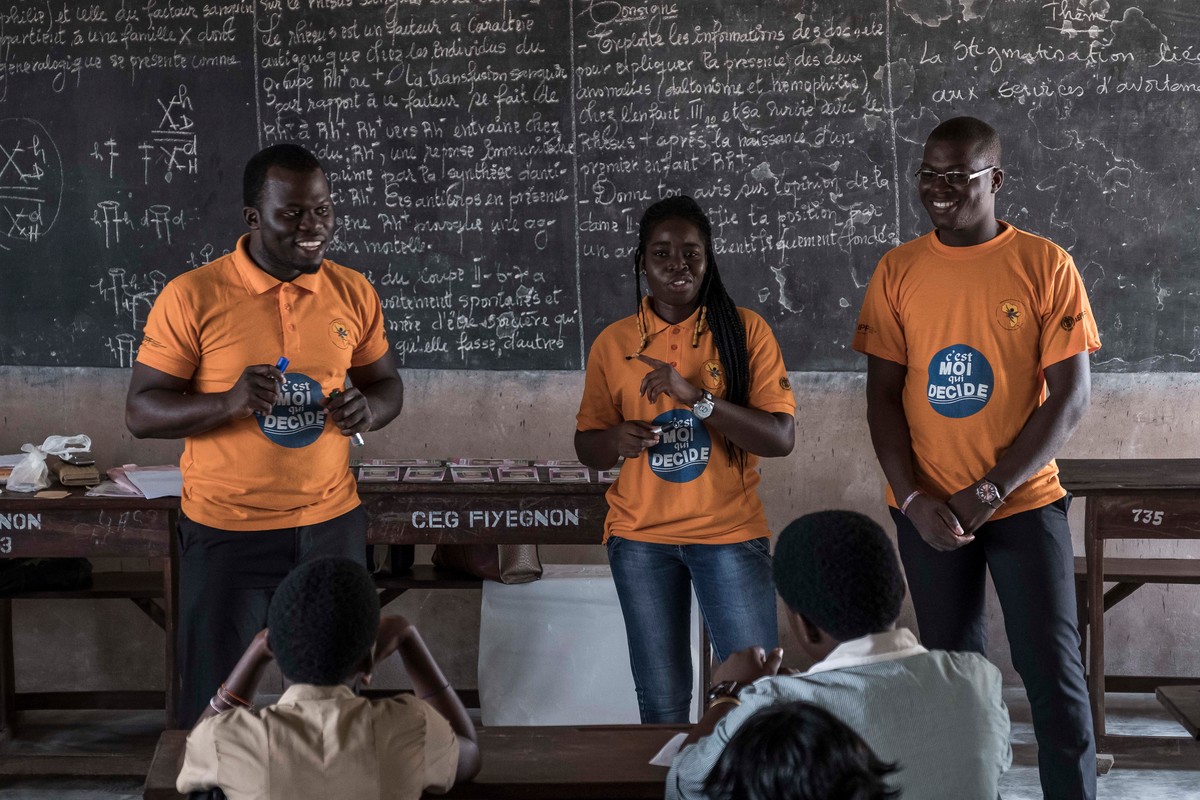
Articles by Kenya

Japan Trust Fund
The Japan Trust Fund (JTF) represents a visionary partnership that began in 2000 between the Government of Japan and IPPF. Together, we invest in programmes that prioritize health equity, gender equality, and human security for all. Traditionally a driving force behind IPPF's efforts to support the integrated HIV prevention programmes of our Member Associations in Africa and Asia, JTF has adjusted to reflect changing global health priorities. We attach importance to universal access to sexual and reproductive health and rights - an essential contributor to universal health coverage and the global development goals. These projects have transformed the lives of people most vulnerable to HIV and high risk of maternal and child mortality. Equally, it ensures that as a donor, the GOJ’s response to HIV remains people-centred and contributes to human security.

ACT!2030
IPPF collaborates with UNAIDS and The PACT to implement ACT!2030 (formerly ACT!2015), a youth-led social action initiative which engages young people in 12 countries with advocacy and accountability around the Sustainable Development Goals (SDGs) and other SRHR agreements/frameworks. ACT!2030 was initiated in 2013 as a way to increase youth participation in the negotiations leading up to the adoption of the post-2015 development agenda, and for two years focused on establishing alliances of youth-led and youth-serving organisations in 12 countries across the world. The project is currently in Phase 4, which runs until the end of 2017, and aims to establish youth-led, data-driven accountability mechanisms to ensure youth engagement with the implementation of the SDGs and build an evidence base for advocacy. Ultimately, Phase 4 of ACT!2030 seeks to identify, assess and address key policy barriers to young people’s sexual and reproductive data by using existing data, supplemented by youth-collected data, to advocate and lobby for policy change. This phase involves four main activities: indicator advocacy (persuading decision makers to adopt youth-friendly SRHR and HIV indicators, including on things like comprehensive sexuality education (CSE) and access to youth-friendly services, into national/global reporting mechanisms); evidence gathering (creating national databases on quality of and access to youth-friendly services and CSE); communications (transforming this data and evidence into communications pieces that can be used to advocacy and lobby at national and international level); and global exchange (facilitating global visibility to share advocacy and engagement learnings and increase youth-led accountability in global and regional processes). ACT!2030 is implemented by national alliances of youth organisations in 12 countries: Algeria, Bulgaria, India, Jamaica, Kenya, Mexico, Nigeria, Philippines, South Africa, Uganda, Zambia and Zimbabwe.

SIFPO 2: Family Health Options Kenya (FHOK)
FHOK is a leading service delivery organisation that complements the efforts of the Ministry of Health by reaching out to marginalized, underserved and vulnerable populations including young people, with information and services on voluntary SRH/FP services. In order to improve FP service delivery to adolescents, FHOK together with Sustainable Networks Project, HC3 Project and the Population Council is implementing the GREAT (Girls, Reproductive Health, Empowerment, Access and Transformation) project in Homa Bay County. The activities of the GREAT project will contribute to the objectives of the Homa Bay Family Planning Strategic Plan 2015-2019 which prioritizes: SIFPO2 Support in Kenya includes: Training health care workers and community based workers in integrated family planning and HIV service delivery for young people. Increasing access to voluntary FP services to 4,000 young people 15-24 years (including those living with HIV and AIDS) through service delivery points at static facilities, outreaches and community health workers Increasing access to high quality community-based information on family planning for young girls including those living with HIV and AIDS Supporting the sexual and reproductive health needs among young people 15-24 years (including those living with HIV and AIDS) by implementing a social behaviour change Results in 2016: 20 facility based service providers from 13 public facilities were trained to provide FPHIV integrated services both within their facilities and through outreach services 20 community members recruited to be new community health workers (CHWs) were trained on all FP methods and how to mobilize communities for FP. As a result, CHWs in focal districts now provide condoms and pills and make referrals for the other methods 20 youth living with HIV and AIDS were trained in all FP methods information. As a result, the young people are providing condoms and education on FP to their peers and making referrals as appropriate. The 20 peers were chosen in consultation with HIV community groups including DREAMS implementing partners 799 clients were served through the project The Support for International Family Planning Organizations 2 – Sustainable Networks project is a five-year cooperative agreement funded by the U.S. Agency for International Development under Agreement No. AID-OAA-A-14-00038, beginning May 13, 2014. The information provided in this document is not official U.S. government information and does not necessarily represent the views or positions of the U.S. Agency for International Development.

End gender based violence and HIV to ensure equity
18 July, Durban: Gender Based Violence (GBV) must be recognised and addressed if we are to end HIV and AIDS urged the International Planned Parenthood Federation (IPPF) and the United Nations Entity for Gender Equality and the Empowerment of Women (UN Women) at a panel during the International AIDS Conference Monday. The impact of HIV among women and girls in all their diversity is significant and alarming. Women’s greater physical vulnerability to HIV is compounded by social norms, gender inequalities, poverty and violence. Women living with HIV are also more likely to face stigmatisation, infertility, and even abuse and abandonment, contributing to their disempowerment. In East and Southern Africa, the risk of HIV among women who have experienced violence maybe three times higher In Uganda and South Africa studies found women who experienced intimate partner violence were 50 per cent more likely to have HIV than women who had not experienced violence. In many countries in Africa, getting married is among the ‘riskiest’ behaviour for women, where they may be exposed to unprotected sex with a husband who has multiple sexual partners, and to underlying power dynamics between men and women that prevent women from accessing condoms and then insisting on their use. Julia Omondi, a 24 year old advocate from Family Health Options Kenya (FHOK) highlighted the most common root causes of gender based violence and HIV, ‘I work with a group of 50 young girls like myself, called the 3E advocates to prevent girls from child marriage; support girls who are living with HIV to understand their rights, make parents and communities aware of the laws that protect girls from child marriage. We need to raise our voices to stop child marriage and turn the tide against HIV’. “Empowerment + Engagement = Equality” is a joint project supported by UN Women and IPPF implemented in Kenya, Malawi and Uganda to address HIV vulnerability among adolescent girls and young women by engaging and empowering them. Traditional leaders like the senior chief Theresa Kachindamoto from Malawi spoke of her role to change harmful gender related practices, she said, ‘Chiefs as custodians of culture should be at the forefront to end cultural practices that negatively affect people’s health like sexual cleansing (Fisi), chief blanket. My village is now a model for others and my fellow chiefs come to learn about the change I have brought to Dedtza district in Malawi.’ Nazneen Damji, Policy Advisor- gender equality, health and HIV/AIDS at UN Women, highlighted the recognition by global leaders on the importance of addressing GBV and HIV. “Violence, and the fear of violence, can play a major role in women’s reluctance to know her HIV status and seek care. Fortunately, the Political Declaration on HIV/AIDS adopted in June at the UN General Assembly and the Resolution on women, the girl child and HIV adopted at the 60th Session of the Commission on the Status of Women both call on governments to intensify efforts to end all forms of violence against women and girls, including harmful practices that contribute to the spread of HIV amongst women and girls” ‘Civil society organisations like IPPF play an important part in holding governments accountable. We shouldn’t underestimate our role as advocates to inform national, regional and global policies. If we are to address the dual epidemics of GBV and HIV we need to have progressive polices where perpetrators can be brought to justice and laws and policies uphold gender equality’ said Zelda Nhlabatsi, the executive director of Family Life Association of Swaziland (FLAS). The session was sponsored by IPPF Africa Region, UN Women and the Ford Foundation.

Webinar: Addressing SRH and HIV needs among people who use drugs
“Addressing sexual and reproductive health (SRH) and HIV needs among key populations: People who use drugs - the case of Kenya” took place on Thursday, 27 August 2015. The German BACKUP Initiative in collaboration with IPPF funded a three-year project, “Shadows and Light”, which addresses the sexual and reproductive health (SRH) and HIV needs of key populations at higher risk of HIV within four IPPF Member Associations (MAs). This included a focus on transgender people in India; sex workers in Uganda; people who use drugs in Kenya; and men who have sex with men in Cameroon. This webinar series is highlighting the importance of addressing SRH within HIV programmes for key populations, and how Global Fund to fight AIDS, TB and Malaria (Global Fund) is integral to their success and sustainability. Each webinar session focuses on one key population. Facilitated by IPPF and the German BACKUP Initiative, the webinars are held in cooperation with key population networks or organizations; the Global Fund; and IPPF MAs. The first webinar was held on 26 March: “Transgender People: The Case of India”; and the second webinar was held on 18 June: “Sex Workers: The Case of Uganda”. This third webinar focussed on "People who use drugs: The Case of Kenya". Besides highlighting the importance of SRH and HIV linkages including integrated service provision for people, the webinar aimed to: introduce the SRH components of the consolidated WHO guidelines on HIV prevention, diagnosis, treatment and care for key populations; discuss the main barriers and challenges people who use drugs face to access SRH and HIV services; understand how addressing SRH within HIV programmes and services funded by the Global Fund is possible; and learn from country-level experiences about successful interventions, challenges and recommendations. Speakers included Ruth Birgin from the International Network of People who use Drugs (INPUD), Lilian Kayaro from Family Health Option Kenya (FHOK), and Mauro Guarinieri from The Global Fund to Fight AIDS, Tuberculosis and Malaria. Background about Kenya: In Kenya the HIV epidemic has high prevalence among key populations including people who use drugs. There are clear indications of both rapid increases of drug use and HIV prevalence amongst this community, which was reported as 18% in 2011 (UNAIDS 2012). Government services are seeking to respond to this through the recent introduction of harm reduction interventions. These however face opposition from conservative and religious groups within Kenya, illustrating the stigma these populations face, and corresponding barriers to service access. Family Health Options Kenya (FHOK) have clinic sites in coastal areas of Kenya where this concentrated HIV epidemic is focussed, and so well placed to respond. In this first year implementing period, FHOK commenced the project with orientation meetings for the staff team both at Head Office and at the Coast Region Office and clinic. The project is building on a call for community partnership to increase access to harm reduction counselling and support for people who use drugs. The presentation slides are available to download.
Integra Initiative
Integra is a 5-year research initiative in Kenya, Malawi and Swaziland. It aims to reduce HIV infection, HIV-related stigma and unintended pregnancy. IPPF implements the Integra Initiative with support from the Bill and Melinda Gates Foundation and in collaboration with the London School of Hygiene and Tropical Medicine and the Population Council.

IPPF funds youth-led projects to tackle abortion stigma
As part of our work in tackling abortion stigma, IPPF awards small grants to young people to create projects that would tackle the issue of abortion stigma in their communities. In 2015, small grants were awarded to promising projects submitted by young people in Ghana, Palestine, Spain, Macedonia and Nepal. In 2017, a further six grants were awarded to young people in Guinea, Kenya, Nepal, Puerto Rico, Sierra Leone and Venezuela. In 2019 five more grants were awarded to youth-led projects in Albania, Colombia, Nigeria, Spain and Tanzania. These documents give more information about what these projects set out to do, their methods and the results.







